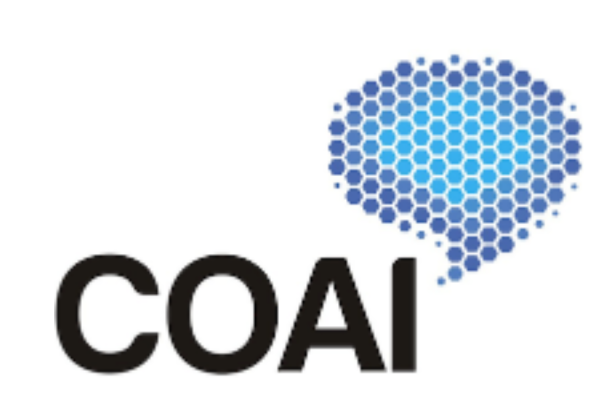Cellular Operators Association of India (COAI), the apex industry body representing the digital communications ecosystem in the country, today released the telecom industry’s recommendations for the upcoming Union Budget 2024-25 to the Ministry of Finance, Government of India. COAI believes that these recommendations will help enhance the financial well-being of the sector, which is crucial for fulfilling the Government’s mission of digital empowerment and inclusivity for its citizens. The key highlights of the recommendations are as follows:
Abolish Regulatory Levies – USOF and AGR
Considering the huge capital that Telecom Service Providers (TSPs) have to invest in the current scenario, especially for the deployment of 5G, COAI recommends that the Universal Service Obligation Fund (USOF) levy be abolished. Alternatively, the government may consider the suspension of the USO contribution of 5% of AGR till the existing USO corpus of approximately INR 80,000 Crore is exhausted.
COAI also recommends that the License Fee be urgently reduced from 3% to 1%, so that it just covers the administrative costs by the DoT/Government thereby relieving the TSPs from additional financial burden.
The industry is also concerned over the definition of Gross Revenue (GR). The present definition covers revenue from all telecom activities. This has created ambiguity because the term telecom activity is not defined clearly, so it may include revenue from activities believed to be incidental to telecom activity. Therefore, COAI recommends that the definition of GR be made precise, stipulating that the revenue from activities for which no license is required should not be a part of GR.
Extension of carry forward of business losses from 8 years to 16 years for telecom sector
Owing to the intense price competition in the market, the telecom industry in India has consolidated from over 10 companies in 2017 to 3 private and 1 public sector company, which is an optimal structure and encourages healthy competition. Further to the above, cash flow and projections of some of the players in the telecom industry have also been adversely impacted post the Hon’ble Supreme Court Ruling of 2019 in the context of calculation of Adjusted Gross Revenue, whereby telecom operators are required to pay additional AGR dues basis the revised computation, over a longer period of time. Telecom sector requires periodical sizable capital investment due to technological advancement which further adds stress to the sector. Existing provisions provided 8 years limitation to business losses which may result in lapse of losses for those companies who have longer recovery journey.
COAI urges the Government to address above concern by introducing a special regime for the telecom operators under Section 72 of the Income Tax Act, 1961 wherein the business losses can be carried forward and set-off till Sixteen (16) assessment years from the existing 8 years. To prevent misuse of this extended time limit, a restriction can be put on dividend distribution wherein any dividend distribution within 5 years from date of utilization or set-off of unutilized losses by the Company can attract additional dividend distribution tax of 25% (in addition to TDS), up to the amount of losses set-off by the company, on which no deduction or credit will be available to company or shareholder.
Exemption of Service Tax on additional AGR dues
COAI emphasizes the importance of exemption of Service Tax on the “assignment of right to use natural resources” granted by the Central Government, State Government, and Development Authorities.
The Supreme Court’s judgment on the methodology for calculating AGR payable to the Government has imposed an additional financial burden on telecom service providers. Prior to the introduction of GST, Service Tax was paid on AGR payments, with credit available for the same. However, post GST
implementation, the additional payment of AGR due to the Supreme Court ruling, combined with Service Tax, will make it as a cost for telecom companies as no credit will be admissible to them.
COAI urges the government to exempt Service Tax on the additional AGR liability arising from the Supreme Court judgment. Specifically, relief has been requested for the exemption from Service Tax payment for the period from April 2016 to June 2017, and on various services issued in November 2018. Alternatively, COAI proposes that the Government prescribe a streamlined, time-bound process for claiming a cash refund of the Service Tax paid under the Reverse Charge Mechanism (RCM), which would provide significant relief to the industry.
Exemption of Customs Duty
Over the past 5 to 6 years, the Government of India has gradually increased the customs duty on telecom equipment to 20%, adding a significant financial burden on telecom companies and significantly impacting the rollout of 5G services in India. COAI has requested exemptions on customs duties for certain telecom equipment to alleviate the cost challenges associated with deploying this critical infrastructure.
The industry body recommends that the customs duty be reduced to zero and then gradually increased depending on creation of ecosystem for manufacturing of telecom gear in India. Until high-quality equipment is available domestically at competitive prices, COAI urges the government to reduce customs duties for 4G and 5G network products, as well as other related items, to NIL.
Exemption of GST
Currently, telecom operators pay GST under RCM on payments made to DoT for License Fees, Spectrum Usage Charges, and Spectrum acquired in auctions. This payment, combined with subsequent Input Tax Credit (ITC) utilization, has led to a substantial accumulation of ITC within telecom companies. As a result, there is a significant blockage of working capital, imposing a heavy financial burden on these companies.
Telecom operators urge for an exemption from GST under RCM on these payments. This will alleviate the financial burden by preventing further ITC accumulation and releasing blocked working capital.
COAI has also requested that the government exempt GST on License Fees, Spectrum Usage Charges, and Spectrum Acquisition Fees to provide much-needed relief to the sector. Alternatively, they propose allowing the payment of RCM on Government Services through the utilization of the ITC balance available in the Electronic Credit Ledger.
Custom Duty Exemption for Cable Repair/Installation Operations in EEZ
Telecom companies heavily rely on submarine cables for high-speed transfer of data around the globe. The current customs duty exemption for vessels engaged in laying submarine cables in India is set to expire on September 30, 2024. The government must intervene urgently to extend this exemption to prevent increase in cable-laying costs. Such an increase could adversely affect the future deployment of submarine cables, potentially compromising the quality of service.
Lt. Gen. Dr. S.P. Kochhar, Director General, COAI, said, “Over the past decade, the Government of India has undertaken several reformative steps to fuel India’s digital ambitions and achieve accelerated growth. The telecom industry plays a pivotal role in this transition providing affordable connectivity and inclusivity. Thus, reducing the TSPs’ levy burden and facilitating investment opportunities are not just an economic necessity but a strategic investment for the country’s future. We hope the government will consider these recommendations in the upcoming budget and help the industry navigate through these prolonged challenges. With 5G expected to catalyze digital transformation across sectors, we also urge the government to prioritize telecom infrastructure development. By doing so, the new government can set a precedent for visionary policymaking, driving India towards a robust digital future.”
















